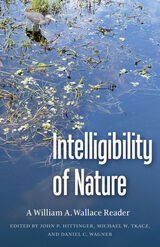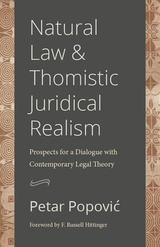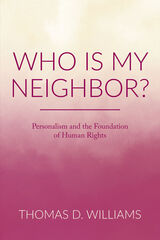3 books about Neo-Scholasticism

Intelligibility of Nature
A William A. Wallace Reader
William A. Wallace
Catholic University of America Press, 2022
The intelligibility of nature was a persistent theme of William A. Wallace, OP, one of the most prolific Catholic scholars of the late twentieth century. This Reader aims to make available a representative selection of his work in the history of science, natural philosophy, and theology illustrating his defense and development of this central theme. Wallace is among the most important Galileo scholars of the past fifty years and a key figure in the recent revival of scientific realism. Further, his long and productive scholarly career has been shaped by a continuous effort to bring the resources of the Aristotelian-Thomistic tradition to the solution of contemporary problems of philosophy and science. Through all of these contributions, Wallace has provided the foundation for a renewed confidence in the capacity of human knowers to attain understanding of the natural order. Consequently, the overall aim of this volume is to secure continued access to his scholarship for readers in the new millennium.
The Intelligibility of Nature will contain twenty-nine previously published essays written by Wallace over a period of some forty years. Many of these essays are currently not readily accessible. They are arranged in five thematic groups, each representing a major subject-area of Wallace's scholarly interests. The first group is devoted to essays on making nature intelligible through the use of scientific models. The second group of essays investigates various ways in which the Aristotelian-Thomistic tradition is foundational to contemporary scientific research. Essays in the third group are historical studies on the origins of modern science. The fourth group of essays discuss the viability of the cosmological argument for the existence of God in light of natural science. The final group of essays consider the relation of science and religion. Together these essays provide a representative sample of Wallace's multifaceted contributions to scholarship.
[more]

Natural Law and Thomistic Juridical Realism
Prospects for a Dialogue with Contemporary Legal Theory
Petar Popovic
Catholic University of America Press, 2022
This book proposes a rather novel legal-philosophical approach to understanding the intersection between law and morality. It does so by analyzing the conditions for the existence of a juridical domain of natural law from the perspective of the tradition of Thomistic juridical realism. In order to highlight the need to reconnect with this tradition in the context of contemporary legal philosophy, the book presents various other recent jurisprudential positions regarding the overlap between law and morality. While most authors either exclude a conceptual necessity for the inclusion of moral principles in the nature of law or refer to the purely moral status of natural law at the foundations of the legal phenomenon, the book seeks to elucidate the essential properties of the juridical status of natural law. In order to establish the juridicity of natural law, the book explores the relevant arguments of Thomas Aquinas and some of his main commentators on this issue, above all Michel Villey and Javier Hervada. It establishes that Thomistic juridical realism observes the juridical phenomenon not only from the perspective of legal norms or subjective individual rights, but also from the perspective of the primary meaning of the concept of right (ius), namely, the just thing itself as the object of justice. In this perspective, natural rights already possess a fully juridical status and can be described as natural juridical goods. In addition, from the viewpoint of Thomistic juridical realism, we can identify certain natural norms or principles of justice as the juridical title of these rights or goods. The book includes an assessment of the prospective points of dialogue with the other trends in Thomistic legal philosophy as well as with various accounts of the nature of law in contemporary legal theory.
[more]

Who is my neighbor?
personalism and the foundations of human rights
Thomas D. Williams
Catholic University of America Press, 2005
Who Is My Neighbor? makes an original, compelling case for human rights as moral entitlements grounded in the dignity of the human person.
[more]
READERS
Browse our collection.
PUBLISHERS
See BiblioVault's publisher services.
STUDENT SERVICES
Files for college accessibility offices.
UChicago Accessibility Resources
home | accessibility | search | about | contact us
BiblioVault ® 2001 - 2024
The University of Chicago Press









